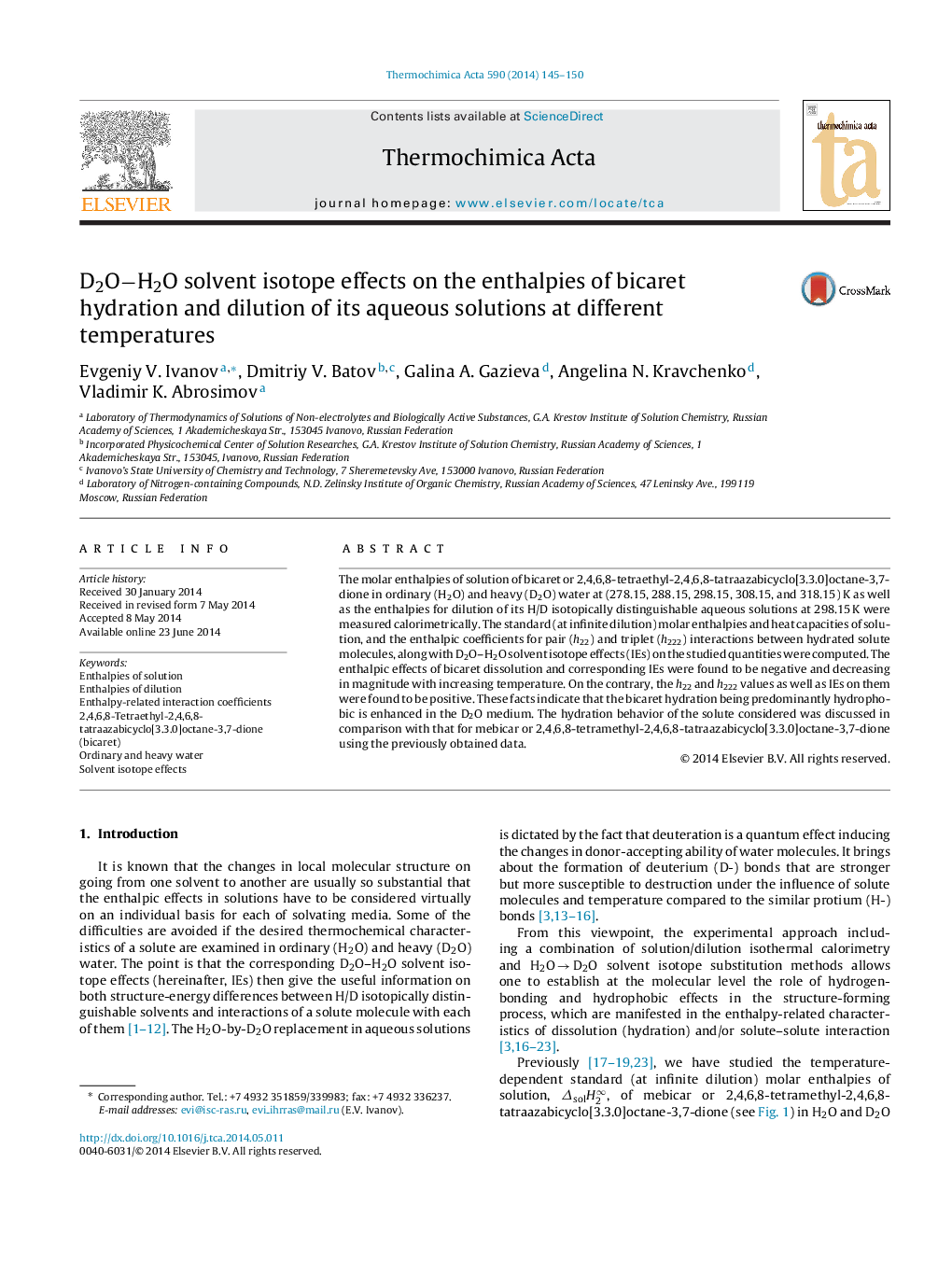| Article ID | Journal | Published Year | Pages | File Type |
|---|---|---|---|---|
| 673241 | Thermochimica Acta | 2014 | 6 Pages |
•Enthalpies of solution of bicaret (tetraethylglycoluril) in H2O and D2O were measured.•D2O–H2O enthalpy-isotopic effect is negative and decreasing with temperature.•Enthalpic coefficients h22 for pairwise solute–solute interactions were derived.•Quantity of h22 is negative and becoming the more negative in heavy water.•Prevailingly hydrophobic hydration of bicaret is weakened with rising temperature.
The molar enthalpies of solution of bicaret or 2,4,6,8-tetraethyl-2,4,6,8-tatraazabicyclo[3.3.0]octane-3,7-dione in ordinary (H2O) and heavy (D2O) water at (278.15, 288.15, 298.15, 308.15, and 318.15) K as well as the enthalpies for dilution of its H/D isotopically distinguishable aqueous solutions at 298.15 K were measured calorimetrically. The standard (at infinite dilution) molar enthalpies and heat capacities of solution, and the enthalpic coefficients for pair (h22) and triplet (h222) interactions between hydrated solute molecules, along with D2O–H2O solvent isotope effects (IEs) on the studied quantities were computed. The enthalpic effects of bicaret dissolution and corresponding IEs were found to be negative and decreasing in magnitude with increasing temperature. On the contrary, the h22 and h222 values as well as IEs on them were found to be positive. These facts indicate that the bicaret hydration being predominantly hydrophobic is enhanced in the D2O medium. The hydration behavior of the solute considered was discussed in comparison with that for mebicar or 2,4,6,8-tetramethyl-2,4,6,8-tatraazabicyclo[3.3.0]octane-3,7-dione using the previously obtained data.
Graphical abstractFigure optionsDownload full-size imageDownload as PowerPoint slide
